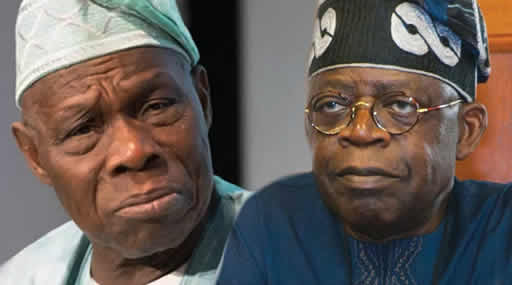LAGOS: The Lagos State chapter of the All Progressives Congress (APC) has strongly rebuked former President Olusegun Obasanjo over his recent criticism of President Bola Tinubu, describing his remarks as laughable, disgracefully hypocritical, and a desperate attempt to remain politically relevant.”
In a statement issued on Tuesday by its spokesperson, Seye Oladejo, the party slammed Obasanjo for alleging in his new book that Tinubu’s government is “competing with Buhari in incompetence.
The APC insisted that Obasanjo lacked the moral authority to question the performance of any administration, given what it termed his “controversial and tainted legacy” as Nigeria’s leader.
Obasanjo, who clocked 88 in March, had launched two new books Nigeria: Past and Future and Lest We Forget: Slavery, Slave Trade, Emancipation and Reparation. In the first, he reviewed the nation’s political history and described Muhammadu Buhari’s administration as the “worst civil administration regime in Nigeria’s history.
Taking a swipe at Tinubu, he added that the current administration appears to be competing with Buhari’s in incompetence,” a statement that has sparked mixed reactions nationwide.
The Lagos APC responded by highlighting Tinubu’s “courageous policy decisions,” including the removal of fuel subsidies, reforms in the foreign exchange market, and efforts to address long-standing inefficiencies.
These are not signs of incompetence,” Oladejo said. They are tough, overdue decisions taken by a leader determined to fix what past governments including Obasanjo’s either broke or ignored.
The party further argued that Obasanjo presided over an era riddled with corruption and failed promises, citing the unresolved multibillion-dollar power sector scandal, rising foreign debt despite debt relief claims, and his controversial third-term agenda, which nearly plunged the nation into constitutional crisis.
“Obasanjo’s administration was notorious for arrogance, squandered opportunities, and institutional decay. His attempt to now paint himself as a saint is an insult to Nigerians who lived through his failures, the statement read.
According to the Lagos APC, Obasanjo’s frequent attacks on sitting presidents are driven by bitterness and a loss of political relevance.
Obasanjo cannot control this government, and he resents that Nigeria has moved beyond his era of do-or-die politics,” Oladejo said. If he has nothing constructive to offer, silence will serve him and the country far better than these attention-seeking outbursts.”
The statement stressed that Tinubu’s administration is not in competition with Obasanjo or any past leader. Instead, it said, the President remains committed to reforms aimed at stabilising the economy, restoring investor confidence, and laying a foundation for long-term national renewal.
“President Tinubu is focused on reform, recovery, and renewal. No amount of potshots from yesterday’s bitter men will derail that journey,” Oladejo declared.
The exchange between Obasanjo and the APC has further fuelled the ongoing debate about leadership accountability in Nigeria. While critics of the government cite rising inflation, insecurity, and unemployment as evidence of inefficiency, supporters argue that Tinubu inherited a broken system and is taking tough but necessary steps to rebuild the nation.
For now, the war of words underscores the deep divisions in Nigeria’s political class between those defending Tinubu’s reforms and those questioning whether his administration can deliver lasting solutions.
Would you like me to also craft a punchy editorial-style sidebar (e.g. Why Obasanjo’s Words Still Sting Nigerian Politics) to run alongside this main report? It could give more background on Obasanjo’s history of clashes with sitting presidents.
Get Plusics of the government cite rising inflation, insecurity, and unemployment as evidence of inefficiency, supporters argue that Tinubu inherited a broken system and is taking tough but necessary steps to rebuild the nation.
For now, the war of words underscores the deep divisions in Nigeria’s political class between those defending Tinubu’s reforms and those questioning whether his administration can deliver lasting solutions.



